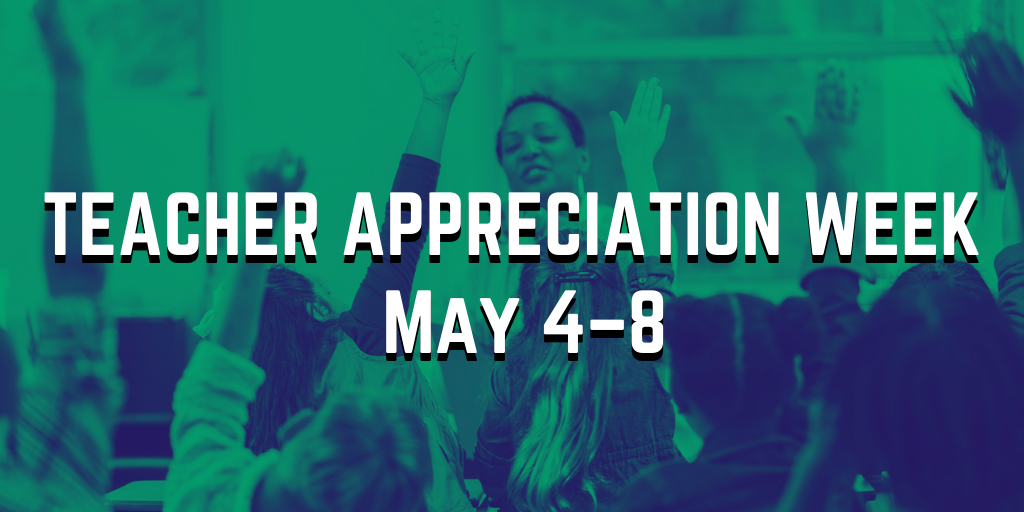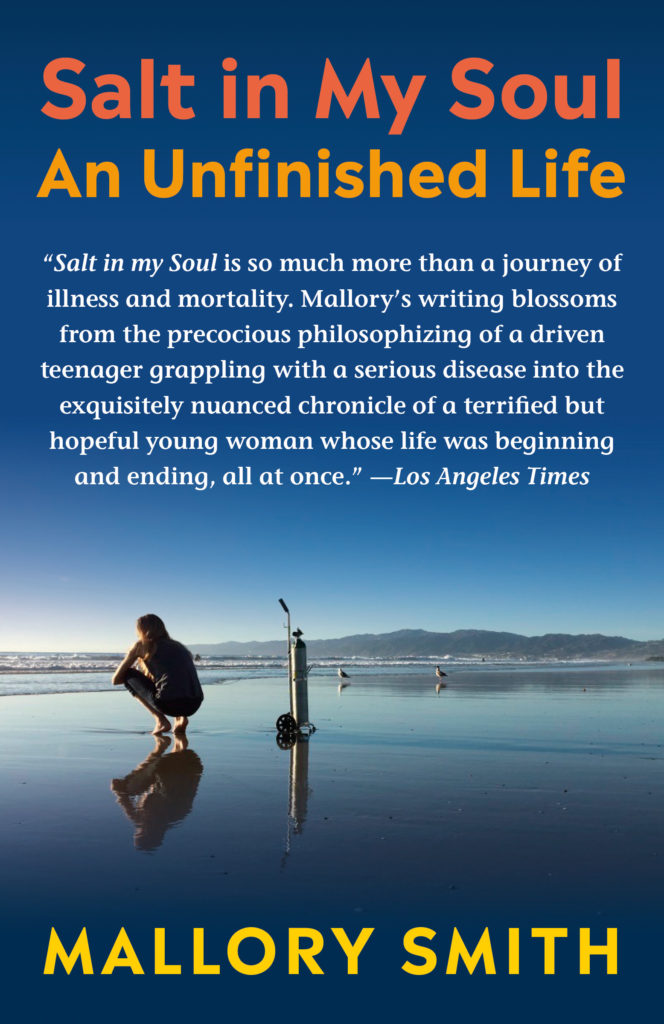SALT IN MY SOUL: AN UNFINISHED LIFE BY MALLORY SMITH
We are excited to offer another book giveaway to our members to celebrate Teacher Appreciation Week! Noting the widespread interest in reading and teaching memoirs, we have curated a collection of resources and offer them in tandem with a generous donation. Courtesy of LEARN and Acorn Paper Products, copies of the memoir Salt in My Soul: An Unfinished Life by Mallory Smith will be made available to current NCTE members. You may request individual copies or classroom sets. We are so grateful for this opportunity!
NCTE supports the use of memoirs in English classes, and we cannot wait to see how our creative teachers will use Salt in My Soul to connect their students to the broader themes Mallory’s experiences bring to light, including chronic illness, public health, legacy, invisible illness, body image, fear, depression and anxiety (or mental health issues), the benefits of journaling, end-of-life choices, and bioethics. This particular memoir is an important read in the era of COVID-19, as the respiratory distress Mallory chronicles parallels many current experiences. With the anxiety surrounding this pandemic, Salt in My Soul provides a perfect backdrop for discussion about the ancillary issues.
If you’d like to hear more from Mallory’s mom, Diane Shader Smith, please see a recent talk she gave about Mallory’s story here or see the book’s website. Diane Shader Smith is available to Skype or Zoom to discuss the book further with your classroom or student book club.
We have approximately 100 books to offer to individuals and will offer the remainder as classroom sets for teachers to use as classwide shared reading experiences or teacher-led book clubs. Please fill out this form to participate and let us know if you are requesting an individual copy or a bundle. The giveaway will be open for one week, until May 8, 2020. This promotion is exclusive to NCTE members.
NCTE has many memoir resources available to you as well. Here is a link to related posts from the Literacy & NCTE blog. Also check out these two Council Chronicle articles:
We are so thankful for this generous donation to NCTE and, in turn, to our members. We are also so grateful to you, our nation’s teachers, for your dedication and devotion to teaching English. Your work and your membership are appreciated!
Classroom Resources
ReadWriteThink.org
- Exploring the Power of Language with Six-Word Memoirs
- In this lesson, students examine the power of word choice as they write six-word memoirs of their lives.
- Family Memoir: Getting Acquainted with Generations Before Us
- After reading a short memoir and reviewing the genre, students choose how to create a memoir of a family member who is at least a generation older.
- Making the Cut: Revising Memoirs by Detecting Clutter and Confusion
- Students improve a slide show by removing pictures. Their reasons for cutting pictures are translated into revision guidelines for cutting unnecessary words and sections from their rough drafts of memoirs.
- Recording Family Stories
- The activity suggests a range of ways to record stories, from writing memoirs to composing an alternative artistic representation such as a photographic collage, a series of panels telling a story, a painting, a video, a musical composition, or a sculpture.
Teaching Resources on Specific Memoirs
- Amazing Biographies: Writing about People Who Change the World
- After reading about historical figures and other important people who have changed the world, children discuss some people whom they consider to be “amazing” and “heroes” and create a tribute to them.
- Exploring Perspectives on Desegregation Using Brown Girl Dreaming
- Designed to complement a fuller study of the Civil Rights Era and the process of desegregation in America, this lesson gives students an introduction to Jacqueline Woodson’s verse memoir, Brown Girl Dreaming.
- Memories Matter: The Giver and Descriptive Writing Memoirs
- In this lesson that tightly integrates personal writing, research, and thematic response to literature, students discuss the importance of having a recorded history of humanity.
- Using Student-Centered Comprehension Strategies with Elie Wiesel’s Night
- Working in small groups, students use reciprocal teaching strategies as they read and discuss Holocaust survivor Elie Wiesel’s memoir Night.
NCTE
From the Council Chronicle
- Memoir and Personal Writing in the Classroom
- In Part 2 of this series on teaching memoir, educators talk about the nuts and bolts of challenging students to analyze texts and then create powerful personal writing.
- Stories Make Us Who We Are
- In this first of a two-part series, NCTE members are interviewed about why memoir and personal writing should be embraced at the secondary and college levels.
From the Literacy & NCTE Blog
- Build Your Stack: Memoir and Reading Choice
- Carolyn Ford shares recommended titles for a memoir unit around the theme of overcoming adversity and finding purpose.
- Oral Storytelling as Memoir
- Amy Miller and Meghan Jones use a unit titled “What Does It Mean to Be a Storyteller?” to help their students understand the power of storytelling for both the teller and the listener.
- The Power of Memoir: Unleashing Students’ Experiences
- The power of memoir is illustrated in this post by Deborah Dean, author of Strategic Writing: The Writing Process and Beyond in the Secondary English Classroom.
- Taking Student Memoir to Cultural, Creative, and Courageous Heights
- High school teacher Adam Mackie outlines some approaches he’s found effective for using memoir in reading and responding to literature.
- Writing Personal Memoirs: An Opportunity for Differentiation in the Classroom
- Jenny Kirsch’s memoir project reminds her students that they have a voice to use and a story to tell.
From NCTE Journals
- A Study of Memoir – (Primary Voices, August 1999)
- A fifth-grade teacher lets her students’ questions lead inquiry into the genre of memoir, leading to an incredible year-long journey. Included: a full-page rubric.
- Bearing Witness: Oral Storytelling in the Classroom – (English Journal, January 2019)
- Christine Gentry argues that it is “our responsibility as educators to act as witnesses to students’ lives and to create space for them to be each other’s witnesses.”
- Contemporary Memoir: A 21st-Century Genre Ideal for Teens – (English Journal, March 2010)
- The authors describe an emerging subgenre of literary nonfiction and suggest ways to help students write their own mini-memoirs.
- “My Life, My Stories”: Reading, Writing, and Belonging in the ESL Classroom – (English Journal, January 2019)
- Collaborating to develop a curriculum for English learners, a teacher and a teacher educator focused on creating a sense of belonging, both in the United States and in the classroom.
- “To Tell My Story”: Approaches to Biography and Memoir in a Secondary Shakespeare Unit – (English Journal, January 2019)
- High school teacher Josh Cabat explores connections between the genre of memoir/biography and the study of Shakespeare.
- Voice and Experience: Forming Counter-Narratives through Personal Poetry – (English Journal, January 2019)
- While teaching in Taiwan, Ah-Young Song found that a creative writing unit invited her English language learners to explore issues of agency and identity.
Other Resources
- 5 Memoir Mentor Texts for the Classroom
- This teacher has collected a short list of NPR author interviews, each providing an excerpt from a contemporary memoir, for use as mentor texts at the high school level.
- How to Teach Memoir in the Middle Grades
- Jake Wizner finds many reasons why it’s worthwhile to teach memoir writing to adolescents — in this post he focuses on the how.
- How to Write a Memoir: Be Yourself, Speak Freely, and Think Small
- This essay by Williams Zinsser, author of On Writing Well, provides recommendations for students on writing memoir.
- Teaching Students to Read & Write a Memoir—A Sample Unit of Lessons for Middle School Teachers
- This unit developed by Jefferson (KY) County Public Schools combines a group of lessons designed to teach students the skills and strategies involved in writing a memoir and reading a variety of literary works.
- Teacher Center: Memoir
- This Scholastic blog post from Kathryn Gullo details how to begin a genre study focusing on reading to understand how to write.
- The Surprising Benefits of Student-Created Graphic Novels
- High school teacher Shveta Miller describes how the graphic novel form can inspire deeply personal storytelling.


